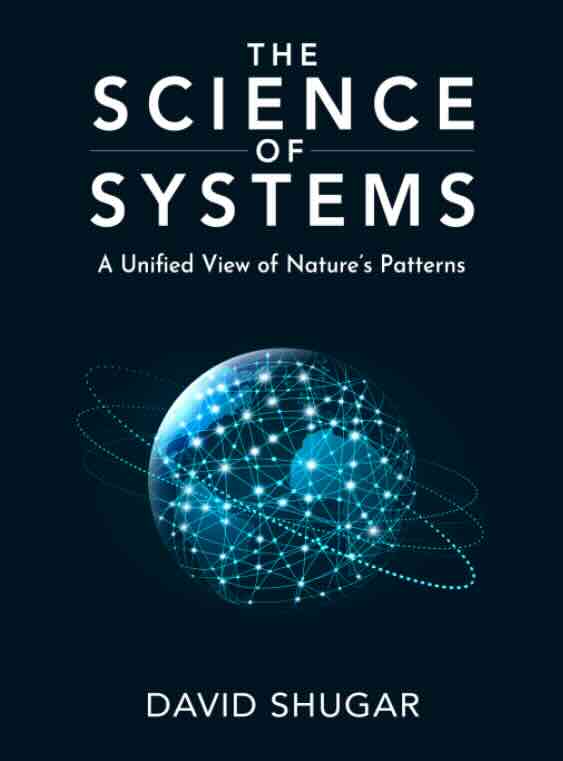An intriguing connection between systems theory and the transcendental lies in the concept of the systemless. Now, what does it even mean to be without a system? Well, following the definition that a general system is defined by a set of elements and a set of relations, written S = (E, R), then that which is systemless has no elements and no relations. This means that the systemless has no categories of elements and relations that can be made in the first place.
Across diverse wisdom teachings, mystical traditions, and meditative practices, the transcendental experience is portrayed as perceiving reality as a unified whole, devoid of distinctions between parts and wholes, self and other. The transcendental state resembles the systemless, as there are no elements (like self or other) that can be defined and no relations among those elements, as all is undifferentiated.
In a very strict sense, the systemless is beyond the reach of knowledge. Any knowledge, or form of analysis, is a kind of system. In order to define logic and math there needs to be parts that can relate to one another to provide relative meaning. If there are no elements or relations, it is impossible to define a system of knowledge. Both the systemless and the transcendental experience are referring to a state prior to posing any model of reality, or any particular form of knowledge.
The transcendental experience is often described as a state of being that is distinct from knowledge. Consider a flower. One could have the full scientific knowledge of the flower, but this is different than the experience of smelling the flower. The experience occurs as the event happens in nature, while knowledge is an analytic model of what happened. A model of an event can be represented in different informational mediums and passed along to other places in nature, while the experience only occurs as the event happens in the place and time that it is happening.
While a system can attempt to describe the transcendental experience, the experience itself is not part of the domain of knowledge. For example, I can write a lot of words about the systemless, but the systemless itself is without words. No form of analysis can ever be the systemless, as they are all types of systems. This is similar to an interpretation of Laozi’s Tao Te Ching that “The Tao that can be told is not the eternal Tao.” The Tao is often described as an undifferentiated unity prior to the distinction of parts, like yin and yang, which itself is not describable by any knowledge.
While the knowledge of nature and experience of nature are distinct, they are both fully compatible and provide different views of the same underlying reality. The transcendental experience does not defy nature in any way and does not break any of the laws of physics. In essence, the transcendental experience is that state of nature experiencing nature, where the mind is not separate from nature. Experience boils down to nature being nature, instead of nature being knowledge about nature.
At its core, the modern field of physics supports the idea that the everything is made of a unified field of energy patterns in spacetime. However, the typical human and animal experience is to separate self from other in order to survive in the world. However, the transcendental experience refers to a state where the mind is completely unified with nature, and instead of thinking about nature, the state of being is the experience of nature being nature. According to physics, this would mean the experience of the unified field of energy in spacetime being itself, rather than any distinction of the self, parts, or analysis.
The idea of a black box and reality has connections to the systemless. While any model, or system, can be made to predict how inputs turn to outputs from a black box, no model can ever be proven to be what the black box itself is made of. This is also similar to the notion that real systems themselves, or nature itself, is a black box. Following this idea, models can be used to test inputs and outputs, but the actual substance of nature can never be proven to unequivocally be a certain model. Thus, any map of reality would be a type of system, while the landscape of reality itself is systemless and unknowable at its core.

The systemless provides a gateway to consider what is beyond any system of analysis and the transcendental. While the systemless can never be analyzed, meditation traditions around the world describe how practicing mindfulness and self-awareness can lead to a transcendental experience that is beyond analysis or distinction. This is fully out of the realm of knowledge, yet fully compatible with nature itself. These teaching are also deeply connected with nature, and accepting oneself as part of nature.
Both systems of analysis and the experience of the systemless provides pathways toward deepening knowledge and the experience of nature. Both science and the transcendental experience can be explored without contradiction and with harmony. The human has the capacity both for the knowledge of nature and the experience of nature. Together, this can help make the human whole and deepen the connection from the nature from which they arose.
Want to learn more about systems theory, natural science, and sustainability? Check out my book! https://davidshugar.com/book/
